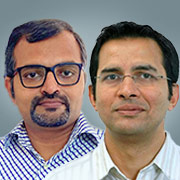Column | Martha’s Rule for human errors

Mail This Article
'To err is human' remains an enduring universal truth; despite the advancement of systems designed to combat it. This principle applies across all domains of human life: political decisions, military strategies, judicial rulings, aeroplane piloting, and indeed, the work of doctors and healthcare professionals.
In hospitals, this phrase reverberates through the corridors, echoing in the minds of healthcare workers. Despite remarkable strides in medical science and technology, the fallibility of human judgement persists. Within the high-pressure setting of intensive care units (ICUs), even minor errors can yield profound consequences.
The UK’s esteemed National Health Service (NHS) is rolling out a policy initiative aimed at addressing human errors, named ‘Martha’s Rule,’ from April 2024.
Martha's Story
In 2021, tragedy struck Martha Mills at King's College Hospital, London, when the 13-year-old suffered a bicycle accident resulting in a pancreatic injury followed by sepsis. Despite the vigilant parents' explicit concerns about Martha's worsening condition and the need to transfer her to an ICU, their pleas went unheard, and Martha died from sepsis. Subsequent findings by the coroner revealed judgmental errors by the treating team and indicated that timely intervention could have saved her life.
In the UK's centralised healthcare system, most critically ill patients are treated in government-funded NHS hospitals. Relocating patients to their preferred hospitals at the request of their relatives poses practical challenges and is uncommon.
The parents of Martha Mills, who held senior editorial positions at the British newspaper The Guardian, initiated an intensive campaign across the country advocating for patients and their families to have the right to seek a second opinion from a different critical care team when facing grave conditions. One of Britain’s leading cross-party think tanks, 'Demos,' collaborated with Martha's parents by preparing a report on the need for a new policy to amplify patient voices and improve safety in hospitals.
The culmination of such campaigns was the enactment of a new law within the NHS, known as Martha’s Rule. Once fully implemented, “patients, families, carers, and staff will have round-the-clock access to a rapid review from a separate care team if they are worried about a person’s condition”, as per the NHS website.
The implementation costs of a 24/7 escalation service for the first 100 hospitals will be initially covered by £10 million in government funding.
Although the law was enacted in response to a single incident and criticised as a knee-jerk reaction by politicians, it points to an inherent issue in the health system: errors are an inevitable aspect of any complex system.
The effectiveness of Martha’s Rule in the UK remains uncertain, but it underscores a critical aspect of healthcare: the practice of seeking and offering second opinions should be embraced as a means to identify and correct mistakes, rather than perceived as a questioning of a doctor’s expertise or skill.

Applicability in India
While there are notable differences between healthcare practices in the UK and India, the insights from Martha’s Rule remain relevant. In India, it’s typical for individuals to consult multiple private hospitals when faced with serious health issues, as seeking a second opinion within the same hospital often carries the stigma of mistrusting the attending physician’s abilities.
Recent research indicates a decline in the quality of patient-doctor interactions in India over the past 10 years, attributable to a complex array of factors. A significant gap in communication, minimal patient participation in treatment choices, exceedingly high patient expectations, and a low tolerance for errors are among the prevalent causes. These issues have precipitated a range of consequences, such as instances of violence against hospitals, particularly in regions like Kerala, which is known for its extensive medical infrastructure and health-conscious citizens.
Hospital attacks are on the rise in Kerala, casting a shadow over its highly praised healthcare sector. These attacks manifest as instances where enraged crowds assault hospitals causing extensive damage to infrastructure and inflicting injuries upon medical personnel. Frequently friends, relatives of patients, or even strangers forcefully enter hospitals, alleging negligence.
Incidents of aggression in healthcare settings often manifest as intense emotional reactions against healthcare professionals, typically in response to unforeseen medical outcomes, even in the absence of any medical negligence. Such incidents profoundly exacerbate the already strained patient-doctor rapport and compelling physicians to adopt a defensive medical practice which, in turn, drives up the cost of healthcare.
In response to the hue and cry from medical professionals and hospital administrators, the state legislative assembly passed the ‘Kerala Healthcare Service Persons and Healthcare Service Institutions (Prevention of Violence and Damage to Property) Act’ in 2012. This legislation was further amended in 2023 with more severe penalties after the tragic killing of a house surgeon in Kottarakkara.
The revised act mandates that any episode of serious physical violence towards healthcare facilities or personnel is subject to a minimum prison sentence of one year, which can be extended up to seven years, in addition to severe financial penalties. Recently, the Kerala Health Department released a 'Code Grey Protocol,' which can be invoked if anyone, including a patient or bystander, turns violent, abusive, or aggressive on the hospital premises.
Bad people aren't the problem
A landmark report titled ‘To Err is Human: Building a Safer Health System’ published by the US Institute of Medicine emphasises that "even apparently single events or errors are due most often to the convergence of multiple contributing factors. Blaming an individual does not change these factors, and the same error is likely to recur. The problem is not bad people; the problem is that the system needs to be made safer." The findings of the book highlight the critical need to establish enhanced systems within healthcare to mitigate the occurrence of human errors.
Patients and their families need to recognize that errors often do not equate to bad people in most cases, and doctors should be willing to involve patients and their families in influencing treatment decisions including receptivity to second opinions.
Many of the issues in healthcare could be significantly improved by a ‘cultural shift’ in medical practice where second opinions are entertained and facilitated. Requests for second opinions should be used as great tools to avoid human errors, and not perceived as questioning the medical authority or competence of the expert.
(Social anthropologist and novelist Thomas Sajan and US-trained neurologist Titto Idicula, based in Norway, write on politics, culture, economy, and medicine.)


